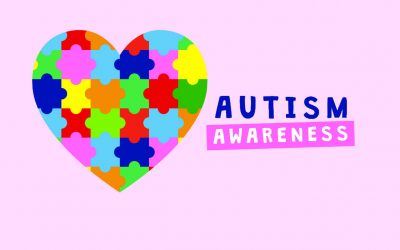Prevalence of Serum Antibodies To Caudate Nucleus In Autistic Children
Neuroscience Letters
Volume 355, Issues 1-2 , 23 January 2004, Pages 53-56
doi:10.1016/j.neulet.2003.10.026
Copyright © 2003 Elsevier Ireland Ltd. All rights reserved.
Vijendra K. Singh nd Wyatt H. Rivas Department of Biology, Biotechnology Center Building, Utah State University, 4700 Old Main Hill, Logan, UT 84322-4700, USA
Abstract
Autism may involve autoimmunity to brain. We studied regional
distribution of antibodies to rat caudate nucleus, cerebral cortex,
cerebellum, brain stem and hippocampus.
The study included 30 normal and 68 autistic children. Antibodies
were assayed by immunoblotting. Autistic children, but not normal children, had antibodies to caudate nucleus (49% positive sera), cerebral cortex (18%
positive sera) and cerebellum (9% positive sera). Brain stem and
hippocampus were negative. Antibodies to caudate nucleus were directed towards three proteins having 160, 115 and 49 kD molecular weights.
Since a significant number of autistic children had antibodies to
caudate nucleus, we propose that an autoimmune reaction to this brain
region may cause neurological impairments in autistic children.
Thus, the caudate nucleus might be involved in the neurobiology of
autism.
Author Keywords: Autism; Autoimmunity; Caudate nucleus; Antibodies;
Neurobiology
Corresponding author. Tel.: +1-435-797-7193; fax: +1-435-797-2766
* * *
Cambridge University (UK) Scraps Plan For Primate Experiment Centre
A scheme to build a research centre to experiment on primates has
been abandoned by Cambridge University, because of rising security and building costs.
The estimated cost of building the centre has jumped from £24m when
the plan was proposed in 1998 to £32m now, at a time when the university
is expecting a £19m spending deficit over the next two years.
The university’s financial watchdog had criticised the project’s
planners for not telling them the centre would involve research on
primates.
The Cambridge pro-vice chancellor, Professor Tony Minson, said the
decision was taken by the university council on Monday because of the rising costs.
But he rejected the suggestion that animal rights group arguments had
inherent merit.
‘The animal rights group will, of course, claim this as a victory,
but in our view they have won no arguments,’ he said. ‘We still believe this
work to be of significant national importance and we are already exploring
with the medical research funding agencies other ways of continuing this
work.’ But the university’s embarrassment over its decision was
emphasised when it admitted it had planned to release the news today, when the media’s focus would be on the release of the Hutton report into the death of David Kelly.
The controversy over the experiments, which would involve tests on
the brains of live animals, has led to the city of Cambridge being the target
for repeated protests.
In some cases, demonstrators have caused huge traffic jams, and
police feared they would be called frequently to the centre – planned for
Huntingdon Road on the outskirts of the city – if it went ahead. For that
reason, they and the city council opposed the university’s planning
application.
The Government has repeatedly backed the scheme, first through
statements by the minister for Science, Lord Sainsbury of Turville, then
by the unexpected decision at the end of last year by the Deputy Prime
Minister, John Prescott, to approve a planning application for the centre,
despite local opposition.
Researchers studying brain disorders said the centre would have
given valuable insights into disease processes and they vowed to find other ways to do the work. Professor Colin Blakemore, chief executive of the Medical Research Council, said yesterday: ‘We will try to make sure it goes on in Cambridge, but if not, it will go on elsewhere eventually, and it will be
patients who benefit.’ But animal rights groups were triumphant. Wendy
Higgins, campaign director for the British Union for the Abolition of
Vivisection, said: ‘The news will save the lives of thousands of monkeys.’
But she feared the Government would still allow a research centre to be
built, possibly on Ministry of Defence land barred to protesters.
A spokeswoman for the RSPCA (Royal Society for the Prevention of
Cruelty to Animals) said: ‘We are campaigning for a reduction in primate
experiments and their replacement with humane alternatives. We need to
move away from the use of these remarkable animals. This should not be beyond the bounds of scientific endeavour in the 21st century.’ The centre would have been the biggest primate research laboratory in Europe, with about 100 apes and monkeys, the closest evolutionary relatives to humans. Researchers insist that only through brain studies on primates can the most useful lessons be learnt about comparable diseases and disorders in humans.
‘Animal rights groups bring out experts saying animal research isn’t
of value, but we don’t subscribe to that view,’ a university spokesman
said.
‘They cite tissue culturing [which uses cells in test tubes rather
than animals] and computer modelling as alternatives. But neither of those
gives an idea of how the brain actually works.’ Professor Blakemore said:
‘The scientific system has strict limits. Animals can be used only when
there is no alternative for finding the answer to important scientific
questions.’
The Abandoned Projects
The work would have investigated how animals behaved under different
brain conditions.
Some of the work would have been ‘non-invasive’, using brain scans.
Some would have required brain surgery to mimic conditions such as
strokes, and some might have administered drugs to mimic effects. No further detail is available because the research grants would have described the work in detail only when the building was nearly complete.
Projects that were under consideration include research into
degenerative conditions such as Alzheimer’s, Parkinson’s and Huntington’s
diseases; traumatic brain injury; strokes; drug addiction; autism and
schizophrenia.


